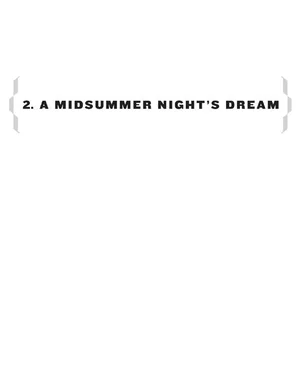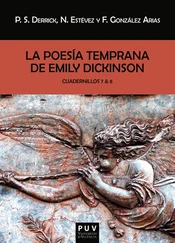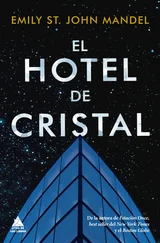Emily Mandel - Station Eleven
Здесь есть возможность читать онлайн «Emily Mandel - Station Eleven» весь текст электронной книги совершенно бесплатно (целиком полную версию без сокращений). В некоторых случаях можно слушать аудио, скачать через торрент в формате fb2 и присутствует краткое содержание. Год выпуска: 2014, ISBN: 2014, Издательство: Knopf, Жанр: Старинная литература, на английском языке. Описание произведения, (предисловие) а так же отзывы посетителей доступны на портале библиотеки ЛибКат.
- Название:Station Eleven
- Автор:
- Издательство:Knopf
- Жанр:
- Год:2014
- ISBN:9780385353311
- Рейтинг книги:4 / 5. Голосов: 1
-
Избранное:Добавить в избранное
- Отзывы:
-
Ваша оценка:
- 80
- 1
- 2
- 3
- 4
- 5
Station Eleven: краткое содержание, описание и аннотация
Предлагаем к чтению аннотацию, описание, краткое содержание или предисловие (зависит от того, что написал сам автор книги «Station Eleven»). Если вы не нашли необходимую информацию о книге — напишите в комментариях, мы постараемся отыскать её.
Station Eleven — читать онлайн бесплатно полную книгу (весь текст) целиком
Ниже представлен текст книги, разбитый по страницам. Система сохранения места последней прочитанной страницы, позволяет с удобством читать онлайн бесплатно книгу «Station Eleven», без необходимости каждый раз заново искать на чём Вы остановились. Поставьте закладку, и сможете в любой момент перейти на страницу, на которой закончили чтение.
Интервал:
Закладка:
“Well.” The man shook his head. “Bad luck. I’m sorry to hear that. I’m Finn, by the way.”
“I’m Kirsten. This is August.”
“That a violin case?” Finn asked.
“Yes.”
“You run away from an orchestra?”
“They ran away from us,” Kirsten said quickly, because she saw the way August’s fist clenched in his pocket. “You here alone?”
“Of course not,” Finn said, and Kirsten realized her error. Even in this calmer era, who would admit to being outnumbered? His gaze rested on Kirsten’s knives. She was finding it difficult not to stare at the scar on the side of his face. Hard to tell at this distance, but it seemed like a deliberate pattern.
“But this isn’t a town?”
“No. I couldn’t call it that.”
“Sorry, just curious. We don’t come across too many like you.”
“Like me?”
“Living outside a town,” Kirsten said.
“Oh. Well. It’s quiet out here. This place you mentioned,” he said, “this museum. You know anything about it?”
“Not really,” Kirsten said. “But our friends were going there.”
“I heard it’s supposed to be a place where artifacts from the old world are preserved,” August said.
The man laughed, a sound like a bark. His dog looked up at him with an expression of concern. “Artifacts from the old world,” he said. “Here’s the thing, kids, the entire world is a place where artifacts from the old world are preserved. When was the last time you saw a new car?”
They glanced at one another.
“Well, anyway,” Finn said, “there’s a pump behind the building if you’d like to fill your water bottles.”
They thanked him and followed him back. Behind the gas station were two small children, redheaded twins of eight or nine years old and indeterminate gender, peeling potatoes. They were barefoot but their clothes were clean, their hair neatly trimmed, and they stared at the strangers as they approached. Kirsten found herself wondering, as she always did when she saw children, if it was better or worse to have never known any world except the one after the Georgia Flu. Finn pointed to a hand pump on a pedestal in the dirt.
“We’ve met,” Kirsten said. “Haven’t we? Weren’t you in St. Deborah by the Water two years ago? I remember little twins with red hair, following me around town when I went out for a walk.”
Finn tensed, and she saw in the twitch of his arm that he was on the point of raising his rifle. “Did the prophet send you?”
“What? No. No, it’s nothing like that. We’ve only passed through that town.”
“We got out as fast as we could,” August said.
“We’re with the Traveling Symphony.”
Finn smiled. “Well, that explains the violin,” he said. “I remember the Symphony, all right.” He relaxed his grip on the rifle, the moment passed. “Can’t say I was ever much for Shakespeare, but that was the best music I’d heard in years.”
“Thank you,” August said.
“You leave town after the prophet took over?” Kirsten asked. August was working the pump while Kirsten held their bottles under the spout, cool water splashing her hands.
“Craziest damn people I ever met in my life,” he said. “Dangerous as hell. A few of us took our kids and fled.”
“Did you know Charlie and Jeremy?” Kirsten recapped the bottles, put them away in her knapsack and August’s bag.
“Musicians, weren’t they? She was black, he was Asian?”
“Yes.”
“Not well. I knew them to say hello. They left with their baby a few days before I did.”
“You know where they went?”
“No idea.”
“Can you tell us what’s down the road?”
“Nothing for miles. Couple of abandoned towns, no one there anymore so far as I know. After that, just Severn City and the lake.”
“Have you been there?” They were walking back to the road. Kirsten glanced at the side of the man’s face, and the scar snapped into focus: a lowercase t with an extra line, the symbol she’d seen spray-painted on buildings in St. Deborah by the Water.
“Severn City? Not since the collapse.”
“What’s it like,” Kirsten asked, “living out here, outside of a town?”
“Quiet.” Finn shrugged. “I wouldn’t have risked it eight or ten years ago, but except for the prophet, it’s been a very quiet decade.” He hesitated. “Look, I wasn’t quite straight with you before. I know the place you’re talking about, the museum. Supposed to be a fair number of people there.”
“You weren’t tempted to go there yourself, when you left St. Deborah?”
“The prophet’s supposedly from there,” he said. “Those people at the airport. What if they’re the prophet’s people?”
Kirsten and August walked mostly in silence. A deer crossed the road ahead and paused to look at them before it vanished into the trees. The beauty of this world where almost everyone was gone. If hell is other people, what is a world with almost no people in it? Perhaps soon humanity would simply flicker out, but Kirsten found this thought more peaceful than sad. So many species had appeared and later vanished from this earth; what was one more? How many people were even left now?
“His scar,” August said.
“I know. And where’s the Symphony? Why would they change the route?” August didn’t answer. There were a dozen reasons why the Symphony might have deviated from the planned route. They were threatened in some way and decided to take a less direct path. They decided upon closer consideration that another route was quicker and expected Kirsten and August to meet them at the airport. They took a wrong turn and vanished into the landscape.
August found a driveway in the early afternoon. They’d been resting in the shade when he rose and walked across the road. Kirsten had noticed the stand of young trees there, but had been too tired and heat-stunned to consider what it might mean. August dropped to one knee to prod at the ground.
“Gravel,” he said.
It was a driveway, so overgrown that it had nearly disappeared. The forest opened into a clearing with a two-story house, two rusted-out cars and a pickup truck slumped on the remains of their tires. They waited a while at the edge of the trees, watching, but detected no movement.
The front door was locked, an unusual detail. They circled the house, but the back door was locked too. Kirsten picked the lock. It was obvious from the moment they stepped into the living room that no one else had been here. Throw pillows were arranged neatly on the sofa. A remote control lay on the coffee table, blurred by dust. They looked at one another with eyebrows identically raised over the rags they’d tied over their faces. They hadn’t come across an untouched house in years.
In the kitchen Kirsten ran her finger over the row of plates in the dish rack, took a few forks for later use. Upstairs, there was a room that had once belonged to a child. The child in question was still present, a husk in the bed—Kirsten pulled a quilt over its head while August was still going through the downstairs bathroom—and there was a framed photograph on the wall of a boy with his parents, all of them beaming and resplendent with life, the boy in a Little League uniform with his parents kneeling on either side. She heard August’s footsteps behind her.
“Look what I found,” he said.
He’d found a metal Starship Enterprise . He held it up in the sunlight, a gleaming thing the size of a dragonfly. That was when Kirsten noticed the poster of the solar system over the bed, Earth a small blue dot near the sun. The boy had loved both baseball and space.
“We should keep moving,” Kirsten said after a moment. August’s gaze had fallen to the bed. She left the room first so he could say one of his prayers, although she wasn’t actually sure if prayer was the right word for it. When he murmured over the dead, he seemed to be talking only to them. “I hope it was peaceful at the end,” she’d heard him say. Or, “You have a really nice house. I’m sorry for taking your boots.” Or, “Wherever you are, I hope your family’s there too.” To the child in the bed, he spoke so quietly that Kirsten couldn’t hear. The only words she caught were “up in the stars,” and she moved quickly on to the master bedroom so that he wouldn’t catch her eavesdropping, but she saw that August had been there already—the boy’s parents had died in their bed, and a cloud of dust hung in the air above them from when August had pulled up the blankets to cover their faces.
Читать дальшеИнтервал:
Закладка:
Похожие книги на «Station Eleven»
Представляем Вашему вниманию похожие книги на «Station Eleven» списком для выбора. Мы отобрали схожую по названию и смыслу литературу в надежде предоставить читателям больше вариантов отыскать новые, интересные, ещё непрочитанные произведения.
Обсуждение, отзывы о книге «Station Eleven» и просто собственные мнения читателей. Оставьте ваши комментарии, напишите, что Вы думаете о произведении, его смысле или главных героях. Укажите что конкретно понравилось, а что нет, и почему Вы так считаете.












